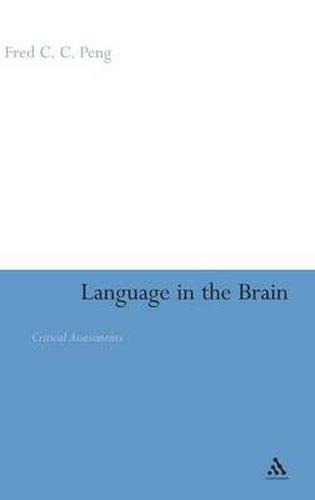Readings Newsletter
Become a Readings Member to make your shopping experience even easier.
Sign in or sign up for free!
You’re not far away from qualifying for FREE standard shipping within Australia
You’ve qualified for FREE standard shipping within Australia
The cart is loading…






This book assesses current assumptions about how language is acquired, remembered and retained as impulses in the brain, from the perspective of neurolinguistics, which is based on neuroanatomy and neurophysiology. Fred C. C. Peng argues that language is behaviour, which has evolved in human genetics through time. Like all behaviours, language utilises many body parts which are controlled by the cortical and subcortical structures of the brain. Language in the brain is memory-governed, meaning-centred, and multifaceted. This view is a challenge to conventional neuroscience, which sees language and speech as separate entities; such a convention is not consistent with how the brain functions. Dr Peng’s study of language in the brain has wide-reaching implications for the study of language disorders, neurolinguistics, and psycholinguistics in dealing with dementia, aphasia, and schizophrenia. This cutting-edge research monograph presents challenging new insights in the field of neuroscience to a linguistic audience and will also benefit neuroscientists. It will be essential reading for academics researching any aspect of language and the brain.
$9.00 standard shipping within Australia
FREE standard shipping within Australia for orders over $100.00
Express & International shipping calculated at checkout
This book assesses current assumptions about how language is acquired, remembered and retained as impulses in the brain, from the perspective of neurolinguistics, which is based on neuroanatomy and neurophysiology. Fred C. C. Peng argues that language is behaviour, which has evolved in human genetics through time. Like all behaviours, language utilises many body parts which are controlled by the cortical and subcortical structures of the brain. Language in the brain is memory-governed, meaning-centred, and multifaceted. This view is a challenge to conventional neuroscience, which sees language and speech as separate entities; such a convention is not consistent with how the brain functions. Dr Peng’s study of language in the brain has wide-reaching implications for the study of language disorders, neurolinguistics, and psycholinguistics in dealing with dementia, aphasia, and schizophrenia. This cutting-edge research monograph presents challenging new insights in the field of neuroscience to a linguistic audience and will also benefit neuroscientists. It will be essential reading for academics researching any aspect of language and the brain.